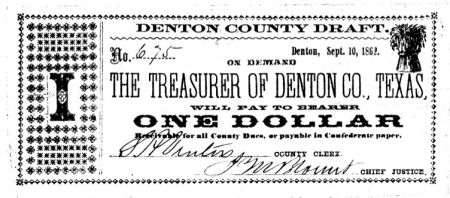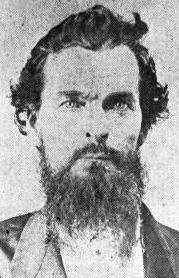 In the South, Confederate notes (paper money) increasingly succumb to inflationary pressures. As the war stretches out, the printing volume of notes grows, while citizens become more uncertain as to whether they will ever be able to redeem the notes (which are to be redeemed following Confederate victory over the United States). Currently, Confederate notes are running at about a 130% annual inflation rate.
In the South, Confederate notes (paper money) increasingly succumb to inflationary pressures. As the war stretches out, the printing volume of notes grows, while citizens become more uncertain as to whether they will ever be able to redeem the notes (which are to be redeemed following Confederate victory over the United States). Currently, Confederate notes are running at about a 130% annual inflation rate.
Widely accepted by merchants early in the war, now the notes are often unwelcome. In response, southerners hoard whatever U.S. currency and gold and silver coinage they can obtain.
Some local towns and/or businesses, in turn, begin printing their own paper currency, known as “script.” Such is the case with Denton County, Texas, which is now issuing script in 50 cents, $1, $2 and $3 denominations. Holders of Denton’s script can use the local paper currency to pay county dues (taxes) or redeem for Confederate dollars.
Jesse Mercer Blount, a Mississippi native born in 1822, is the treasurer, former judge, and now chief justice of the county. Denton’s script bears his signature.
Blount, a founder of the county seat town of Denton and one of the town’s earliest businessmen, is a member of the Denton Baptist Church. He holds the position of chief justice throughout the war, after which he serves in the Texas Senate from 1866-1870, at which time he is removed for his opposition to Reconstruction. Remaining in politics and civil service for many years after being removed from the state senate, Blount dies in 1899, remembered as one of the most important figures in the town’s history.
Sources: Frank Clark, Denton County Draft Script, including script image (link); “Confederate Inflation Rate” (link); J. M. Blount, Legislative Reference Libraries of Texas (link); J. M. Blount Grave Memorial, including photo (link);



